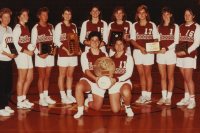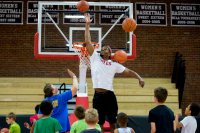
During Sunday’s Super Bowl, Sam Francis ’17 will handle his job with the Cincinnati Bengals the way he handled faceoffs as a Bates lacrosse player: with accurate information and intense preparation.
Now just 26 years old, Francis is the head data analyst for the Bengals, who face the Los Angeles Rams on Sunday. Along with other assistant coaches working high above the SoFi Stadium turf, Francis will have a direct headset line to head coach Zac Taylor, helping to advise him on what the team could, or should, or might, do in any given situation.
Early in his Bates career, Francis was asked by head coach Peter Lasagna to handle faceoffs, a highly specialized and pivotal job, sort of like being a long snapper in football, except way more important.
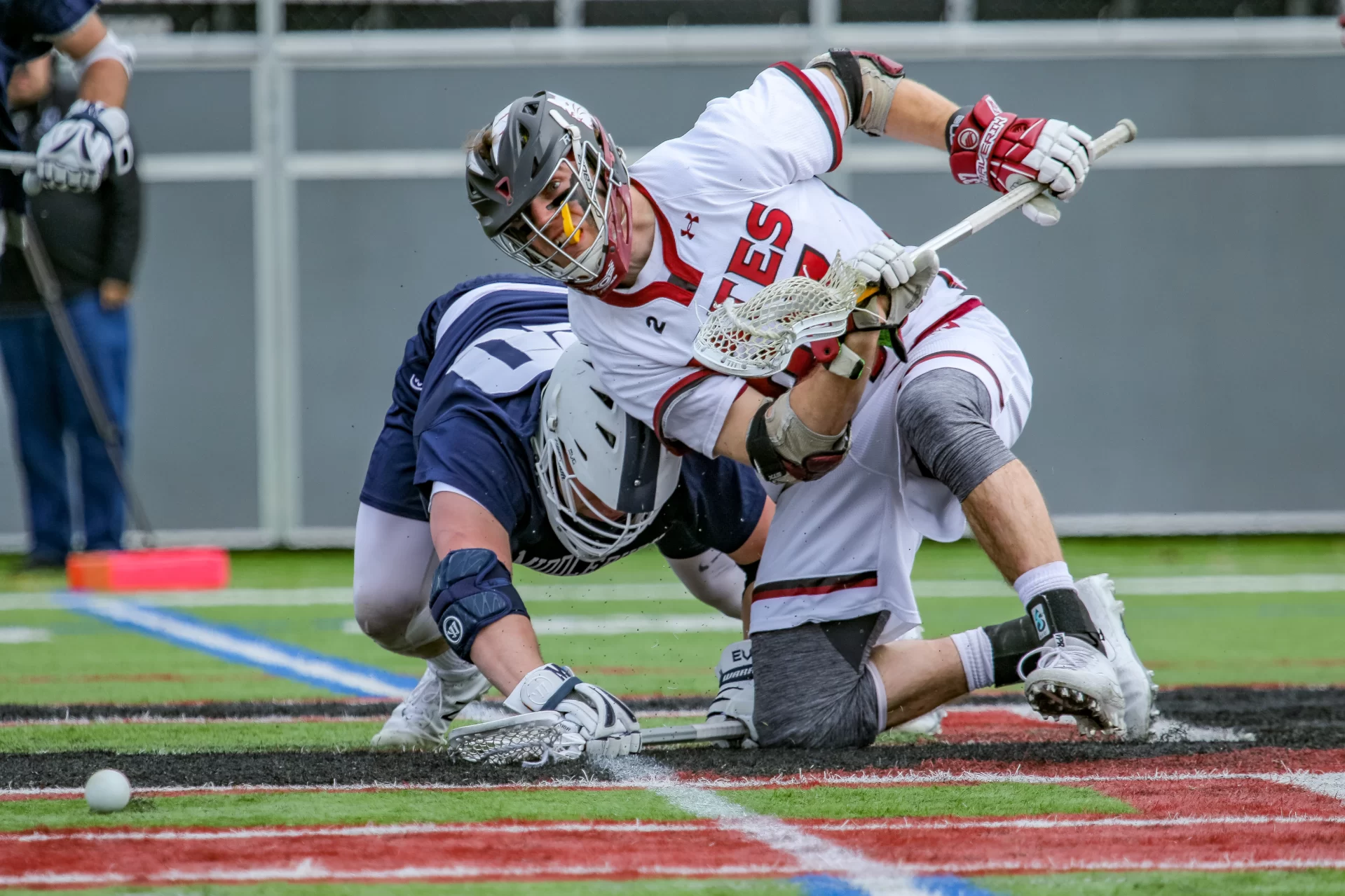
Francis attacked the task “like he attacks everything in his life [and] became a metric analyst on faceoff techniques,” Lasagna told ESPN last fall. Francis went from beginner to excellent by studying the task. By senior year, The Boston Globe was calling him the “faceoff king.”
“I tell people I’m the same as any analyst at any company, but my focus is football.”
When it comes to the rise of analytics in professional sports, what books and Hollywood films like Moneyball get right is the trust factor. Nothing happens unless a coach trusts both the information and the person giving it. And Francis clearly has Bengals head coach Zac Taylor’s ear. “I’ve got a high degree of trust with the information [Francis] is giving me, and how he gives it to me,” the Bengals head coach told ESPN last fall.
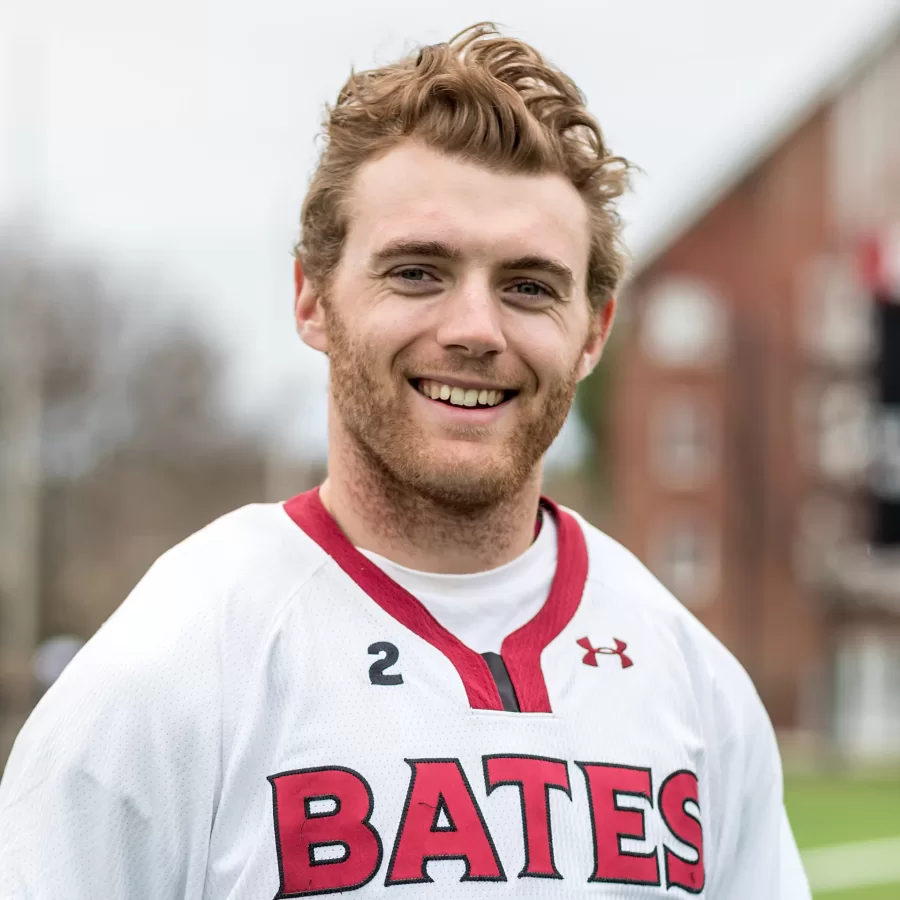
The “how” is very important. When Francis and others describe the work of a data analyst, they emphasize communication skills just as much as chops with numbers and spreadsheets.
“I tell people I’m the same as any analyst at any company, but my focus is football,” Francis told WCPO television reporter Keenan Singleton in 2020. “We have the data available like any company does that pertain to what they do. Based on whatever question or problem we’re trying to solve, I’ll study that.”
In that sense, Francis is “part of the new guard,” as Pro Football Focus director of research and development George Chahrouri told ESPN. “He’s pushing things forward and not afraid to make the necessary statements — not just about having an analytically savvy mind but communicating it in such a way that makes sense,” Chahrouri said.
Bates Names New Football Coach
Bates recently named Matt Coyne as the 22nd head football coach in the program’s 127-year history.
Another member of that new guard — with whom Francis has connected with — is Michael Lopez ’04. He went from college math professor to senior director of football data and analytics for the NFL, and is part of the wave of accurate data that is “taking over NFL strategy,” according to ESPN, like this year’s trend of coaches going for a first down on fourth down rather than punting.
A tweet from the NFL’s Mike Lopez ’04 about the sea change in fourth-down strategy in 2021:
And there’s Matt Bazirgan ’00 of the Houston Texans, who is considered part of the pipeline to a general manager position in the league. And, in the National Hockey League, there’s Tim Ohashi ’11, head video analyst for the Seattle Kraken.
A mathematics and economics double major at Bates, Francis did an analytics internship with the NFL’s Buffalo Bills after graduation before joining the Kraft Analytics Group, a technology and services company that’s part of New England Patriots owner Robert Kraft’s businesses. Francis joined the Bengals in 2019.
Francis spoke with Aaron Morse for the Bates Bobcast recently. This is an edited version of that conversation.
What’s it like speaking to an NFL head coach during a game? How do you balance not saying too much? Other people are in his ear too.
My job is to, as quickly and efficiently as possible, advance the conversation as far as it can go. It might be as simple as, “Hey, remember we watched this.”
It might not be the exact same situation that we’re in, but it gets into that mindset of “We’ve talked about this, and here’s how we thought about it” — without me having to go on this five minute dossier. It’s like, “All right. Get to that framework, get to that state of mind.” Then Zac can start thinking about it.
What do fans and the media get wrong about those conversations?
How quickly these decisions have to be made. The play ends, you’ve got five or 10 seconds to get the play call in, and somewhere in there I’ve got two or three seconds if I have any advice to give it.
You can’t go back after the game and spend two or three hours breaking it down, looking at other times it’s happened in NFL history, and be like, “Oh, they should have done that.” You’ve got to have it off the top of your head. You’ve got to have trust in the relationship to be able to communicate it quickly and just handle it the best you can.
If you feel particularly strongly about something, how do you convey that in two to three seconds?
If I can anticipate it, I’ll communicate it to our offensive coordinator or someone else in the booth who knows the play sheet and different plays — conversations that I haven’t been part of. If I feel strongly about it, I’ll let him know as quickly as I can. But we’ve been through so many situations and we’ve talked through so many that there’s not much we haven’t seen and not much that we don’t have a way of communicating.
You’re an analytics guy. Does that mean ideas about momentum and emotion don’t enter the equation? I mean, do you ever find yourself getting caught up in the moment — like during the comeback vs. Kansas City — or are you able to pretty much compartmentalize?
It’s hard not to recognize the moment while you’re in it. But that’s my job: to be very frank about everything that’s going on and be like, “Hey, here’s what we would do. Here’s what we’ve talked about.”
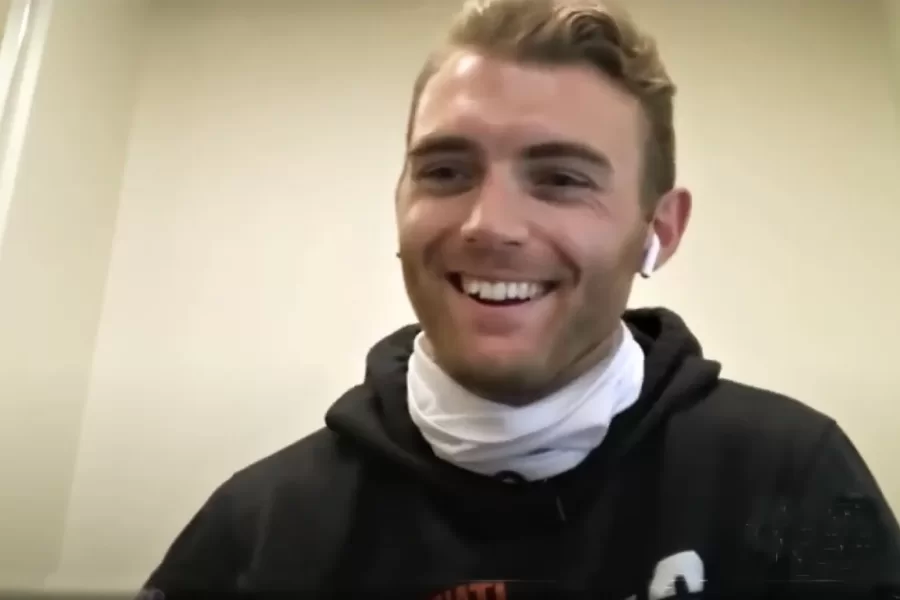
I know I’m not supposed to believe in momentum and all that stuff. But being with the guys and being in the locker room, you can’t help but believe that it is a thing. So I try to take all that into account as best I can. To me, that’s my job: take all the available information, whether that be data and all that stuff or emotions or how coaches feel, and put it together to try and help us make the best decisions we can.
In the title game, the Bengals trailed the Chiefs at the end of the first half. And the Chiefs are the Chiefs — they have a reputation. What’s going through your mind up in the booth?
When we played Kansas in Week 17, we were down 14 points in that game three times. While I don’t know if we were comfortable with it, we had been in those situations before. We had seen those types of situations before and we knew we had the guys in the locker room to fight through that and just keep on our game, come down to a couple situations in the end, and hopefully come out on top.
Words like “situation” and “situational” are used so much in NFL circles today.
We have so many conversations throughout the week about different situations. We talk about every situation that happens around the NFL each week. You look at a situation that a team ended up in: Here’s what they did, and here’s how we would do it. We go through our own games and things that happened and what we would do differently, why they snuck up on us — what we handled well, what we didn’t. So there’s not too much at this point that we wouldn’t be ready for.
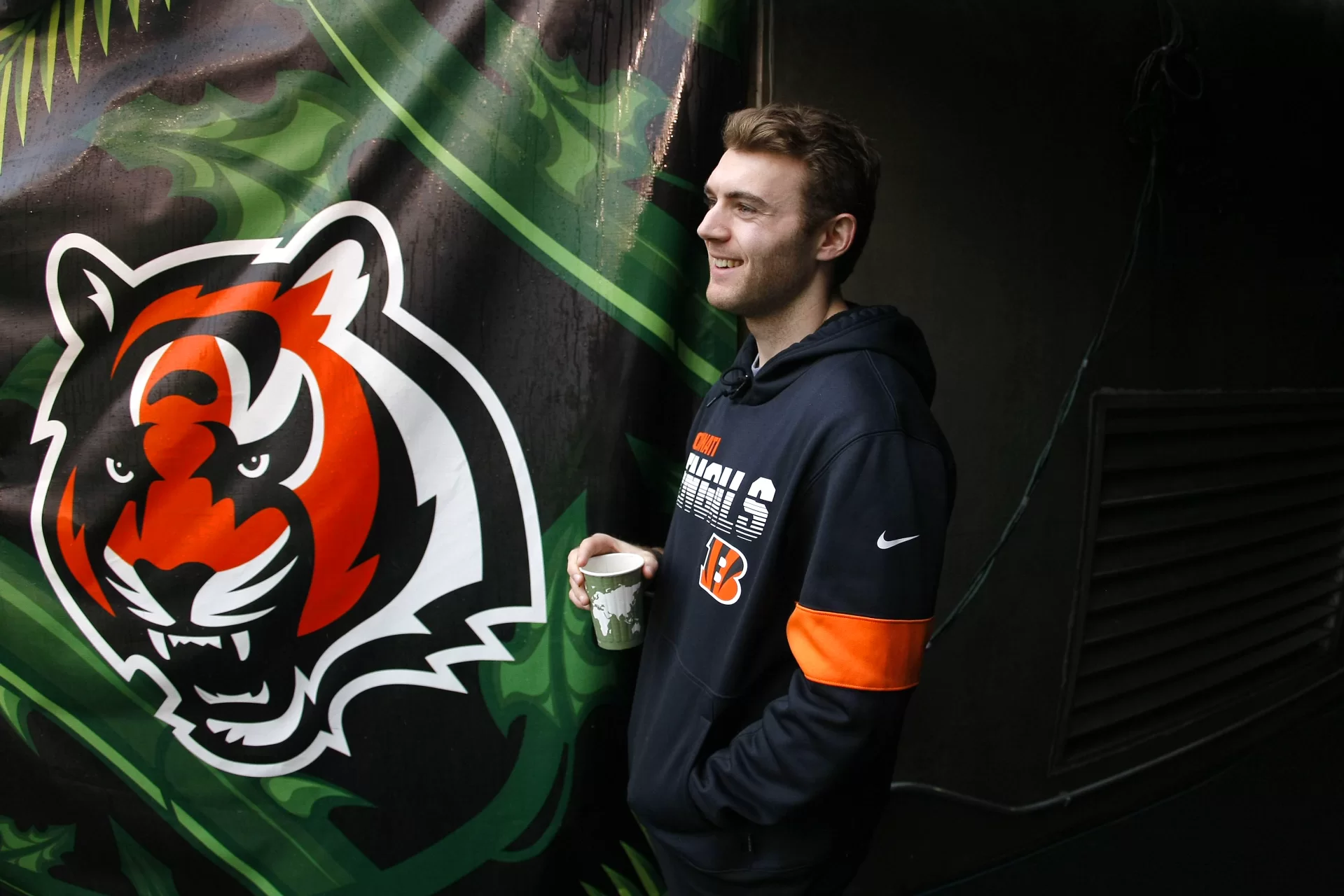
We’ve been a good situational football team all year. We’ve been hanging our hat on that all year, so for it to come down to [stopping the Chiefs before halftime] was huge, holding them to no points.
Before the Chiefs game, Zac had brought it up in our team meeting the night before: The game is going to come down to situations. And he was right.
What information do you have in front of you during the game? What do you have in front of you to help guide what you say to Zac basically?
You try to chart out as much as you can. But there’s only so many things you can chart out until you have hundreds of pieces of paper in front of you.
So at a certain point in working with the coaches in the past couple years, it’s become more second nature. There’s a few things you need to reference as you’re going into a drive and just be like, “All right, go into this drive. Here’s where we’d be with timeouts, time, score.” All that stuff. But really, we’ve done it for three years now. We’ve done it so many times that it’s just off the top of the head at this point.
On the Bengals’ website, you’re still listed in the information technology department, but you’re definitely one of the coaches.
The role hasn’t changed too much, in definition or description. Zac has mentioned it before, it’s just the trust. We’ve been doing it for so long that he trusts what’s coming out of my mouth on game day and the information I’m feeding them, and we continue to build on that. As the trust builds, you try new things, they work, they don’t work, you go from there. I think that’s a big part of it: the relationship and the trust between him and I.
Take us into the Bengals locker room after you won the AFC title.
We have guys who’ve come from winning programs, who have played for championships and played for Super Bowls. Even some of those guys haven’t played in a game like that.
It was awesome. The guys were super high. It’s just great to see, guys having put in all this work and finally getting to see it. So just to see the look on their faces and maybe it hadn’t even set in for me, and it hadn’t set in for them, but some of them recognize the moment. You could just tell the joy in their eyes and it was awesome.
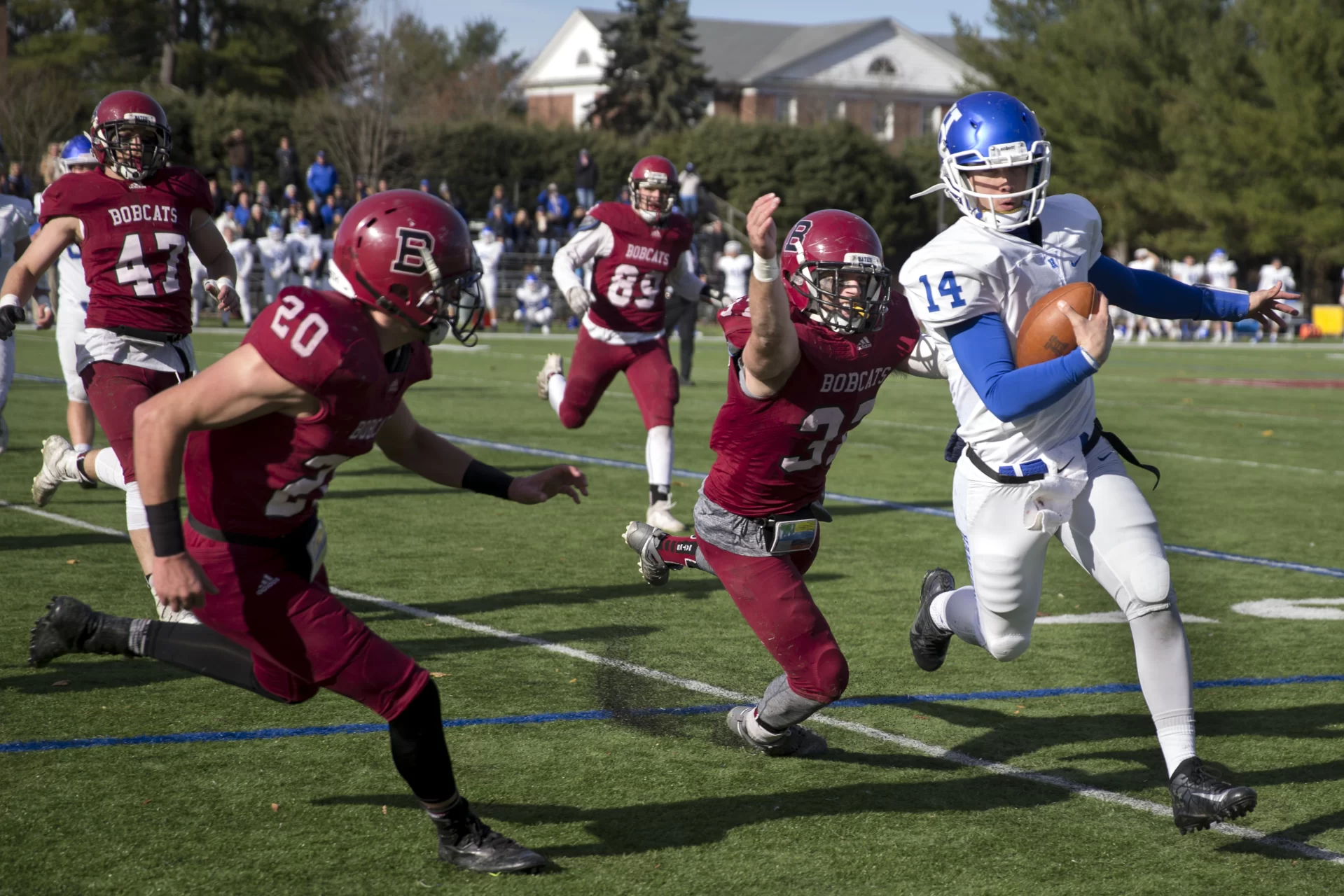
I’ve heard you occasionally help out though in some on-field drills, and you helped Joe Burrow warm up before the AFC game.
I have a close relationship with our quarterbacks coach, Dan Pitcher. Starting at some point last year, he was like, “Hey, do you mind coming out? We’re short on hands with COVID, and you can only have a certain number of people in the field.” I was, “Yeah. Whatever you needed to be.”
So I was allowed to be on the field of practice, so I went out with him, caught balls for him. I’m not too mad about having to go out there — it’s like an experience you could auction off!
How did your Bates education prepared you for this role, whether it be in the classroom or on the football field itself?
At Bates, you learn how to learn. You’re not just going to learn specific skillsets. like, “Hey, if you’re going to go be an accountant, this is exactly what you’re going to need to do.”
It’s more like, “Hey, here’s the project. Here’s the background information. We’re going to guide you and help you, and you can come to us with questions. But at the end of the day, it’s on you to figure it out.”
Winning the AFC title, winning the CBB title. Can you compare and contrast?
Pretty much the same thing, right? They both come with a trophy and they both get the same amount of fanfare!
